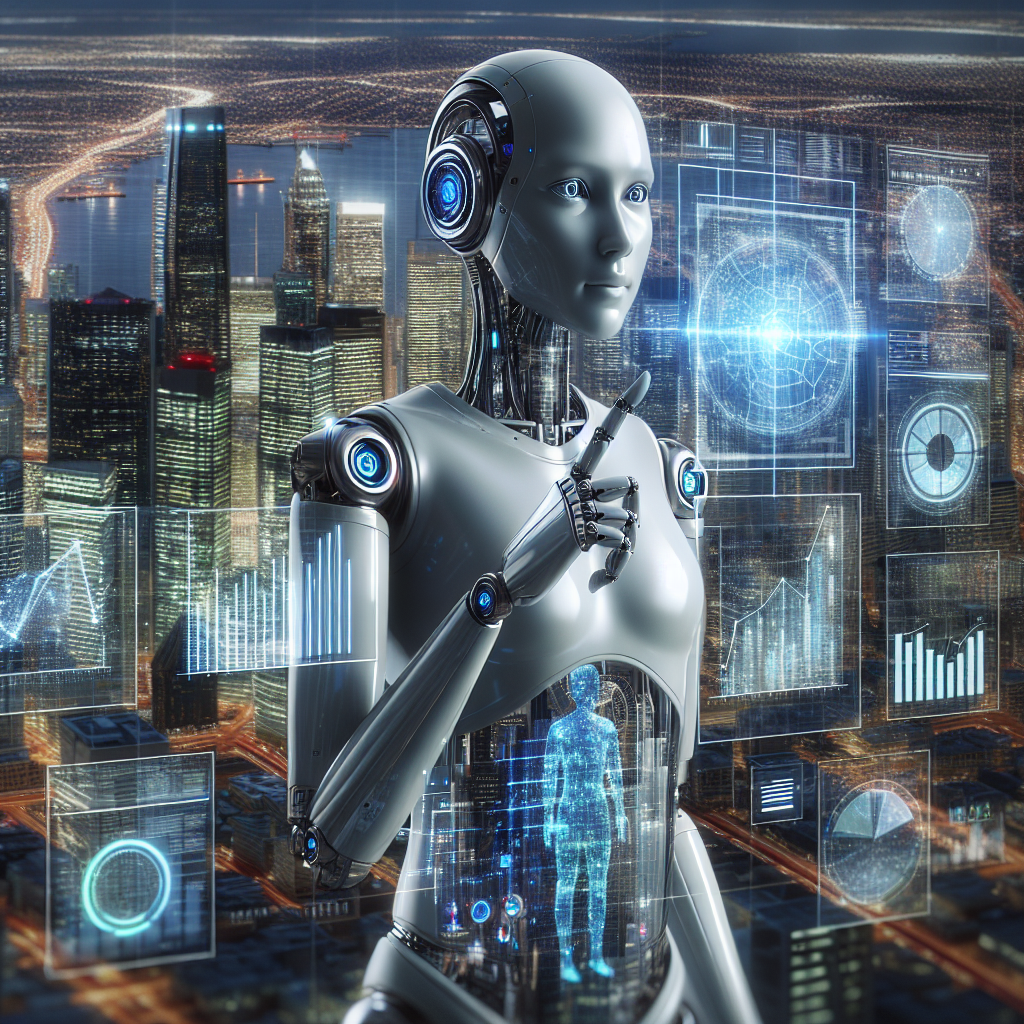The Future of Work: How AGI Could Impact the Job Market
Artificial General Intelligence (AGI) is a term that refers to machines that have the ability to perform any intellectual task that a human can do. This technology is still in its early stages, but experts believe that it has the potential to revolutionize the job market in the coming years. As AGI becomes more advanced, it could lead to significant changes in the way we work and the types of jobs that are available.
In this article, we will explore how AGI could impact the job market in the future and what this means for workers and businesses alike. We will also address some common questions and concerns about the rise of AGI and its potential implications.
How AGI Could Impact the Job Market
AGI has the potential to automate a wide range of tasks that are currently performed by humans. This could lead to the displacement of workers in certain industries, as machines become increasingly capable of performing tasks more efficiently and cost-effectively than humans. Some experts predict that AGI could lead to widespread job loss in sectors such as manufacturing, transportation, and customer service.
However, AGI could also create new opportunities for workers in other industries. For example, the development and deployment of AGI technology will require skilled workers to design, program, and maintain these systems. Additionally, AGI could lead to the creation of new industries and job roles that we have not yet imagined.
One of the key challenges of AGI is that it has the potential to outperform humans in a wide range of tasks, including those that require creativity, problem-solving, and critical thinking. This could lead to a significant shift in the types of skills that are valued in the job market, as machines become increasingly capable of performing cognitive tasks that were once the domain of humans.
Overall, the impact of AGI on the job market will depend on how quickly the technology develops and how it is deployed. Businesses and policymakers will need to carefully consider the implications of AGI and take proactive steps to ensure that workers are able to adapt to these changes.
The Rise of Remote Work
One of the most significant trends in the job market in recent years has been the rise of remote work. The COVID-19 pandemic accelerated this trend, as businesses were forced to adapt to remote work in order to comply with social distancing guidelines.
AGI has the potential to further accelerate the shift towards remote work, as machines become increasingly capable of performing tasks that were once done in person. This could lead to a more flexible and decentralized workforce, with workers able to perform their jobs from anywhere in the world.
However, the rise of remote work also raises a number of challenges. For example, there are concerns about the impact of remote work on collaboration, creativity, and mental health. Additionally, remote work could lead to increased inequality, as workers in certain industries and regions may be more able to take advantage of this trend than others.
Businesses will need to carefully consider how to address these challenges and ensure that remote work is sustainable and equitable for all workers. This will require investments in technology, training, and support systems to help workers adapt to this new way of working.
FAQs About the Future of Work and AGI
Q: Will AGI lead to widespread job loss?
A: While AGI has the potential to automate many tasks currently performed by humans, it is unlikely to lead to widespread job loss. Instead, AGI is more likely to lead to a shift in the types of jobs that are available, with new opportunities emerging in industries that are able to take advantage of this technology.
Q: How can workers prepare for the rise of AGI?
A: Workers can prepare for the rise of AGI by developing skills that are difficult for machines to replicate, such as creativity, emotional intelligence, and critical thinking. Additionally, workers should stay informed about developments in AGI and be proactive in seeking out opportunities for training and upskilling.
Q: What role will policymakers play in shaping the future of work?
A: Policymakers will play a crucial role in shaping the future of work and ensuring that the benefits of AGI are shared equitably among workers. This will require investments in education and training programs, as well as policies that support workers in transitioning to new industries and job roles.
Q: How can businesses leverage AGI to improve productivity and efficiency?
A: Businesses can leverage AGI to improve productivity and efficiency by automating repetitive tasks, streamlining processes, and gaining insights from large amounts of data. By integrating AGI into their operations, businesses can stay competitive in an increasingly digital and automated world.
Conclusion
The rise of AGI has the potential to revolutionize the job market in the coming years, with significant implications for workers, businesses, and policymakers. While AGI has the potential to automate many tasks currently performed by humans, it is also likely to create new opportunities and industries that we have not yet imagined.
Businesses and policymakers will need to carefully consider the implications of AGI and take proactive steps to ensure that workers are able to adapt to these changes. This will require investments in education, training, and support systems to help workers develop the skills they need to thrive in a rapidly changing job market.
Overall, the future of work is likely to be shaped by the rise of AGI, as machines become increasingly capable of performing tasks that were once the domain of humans. By preparing for these changes and embracing the opportunities that AGI presents, workers and businesses can ensure a more prosperous and equitable future for all.

